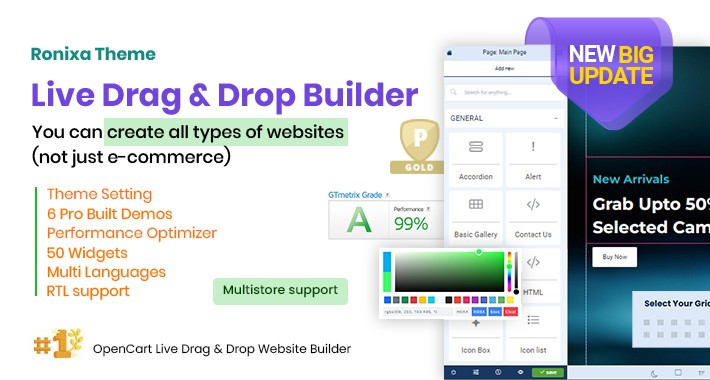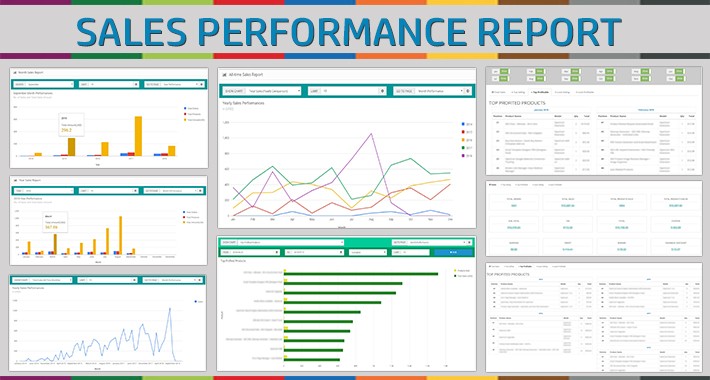Why Buy Extensions from the Official OpenCart Marketplace
Managing an OpenCart store often requires adding extra features whether it’s integrating a payment gateway, improving SEO, or customizing your checkout process. While it's tempting to download free or third-party plugins from random websites, the official OpenCart Marketplace remains the most secure, trustworthy source for extensions.

Vetted Developers and Verified Code
Every extension published on the OpenCart Marketplace is submitted by a verified developer. These developers go through an approval process, and their submissions are reviewed for code quality, functionality, and compatibility. This oversight significantly reduces the chance of bugs, abandoned projects, or malicious code.
In contrast, downloading extensions from unofficial sources poses serious risks—including site crashes, backdoors, and customer data exposure.

Built-in Buyer Protection
Purchasing directly from OpenCart gives you a documented transaction, proof of purchase, and access to support. If something goes wrong, you can contact the extension developer through your OpenCart account. In unresolved cases, OpenCart can step in to mediate or refund, offering an additional layer of assurance.
No Compatibility Guesswork
Extensions on the Marketplace are clearly labeled with the OpenCart versions they support. This prevents the common issue of installing a module that breaks your site because it’s not made for your version. It also saves developers and store owners from endless troubleshooting.
Clear Reputation and Update History
The Marketplace gives each extension a rating, review section, and changelog. You can read real feedback from other users and see how actively a developer maintains the module. Frequent updates are a strong indicator of long-term value and ongoing support.
Trusted Payment Gateways
When you buy from the Marketplace, your transaction is handled securely using established payment processors. You’re not sharing your card information with unknown websites. That minimizes fraud risk and keeps your payment details protected.
How Official Extensions Protect Your Store from Malware and Hacks
Installing an unknown extension is like letting a stranger into your back office. One poorly written or malicious plugin can expose your store to serious security risks including stolen customer data, hijacked payment pages, or even complete site takeovers.
Buying from the official OpenCart Marketplace helps eliminate these threats before they happen.
Code Reviewed for Safety and Functionality
Before an extension is approved for sale, it undergoes a manual review process by the OpenCart team. This includes checking for code vulnerabilities, unauthorized scripts, and functions that could be exploited. Developers who cut corners or include suspicious logic are flagged, and their modules never make it to the live marketplace.
This screening acts as a firewall between your store and harmful code without needing your intervention.
Developers Are Accountable and Traceable
When you buy an extension from the OpenCart Marketplace, you know exactly who built it. Each developer has a public profile, with ratings, reviews, and a visible update history. This accountability discourages bad actors from uploading harmful files, as they risk being banned and publicly reported.
Compare that to third-party sources, where developers often use aliases, abandon support, or disappear after taking payment. If something breaks or worse, compromises security you’re left with no recourse.
Regular Updates Patch Vulnerabilities Fast
Even legitimate code can become outdated and insecure over time. The difference is how fast those issues get patched. Developers on the official marketplace are incentivized to fix bugs quickly because their reputation is tied to every listing. You’ll often see clear version logs noting security patches and compatibility fixes.
This reduces your window of exposure compared to using extensions that sit unmaintained on a file-sharing site.
Real Users Flag Suspicious Behavior
Because the OpenCart Marketplace has active user reviews and a public comments section, problematic extensions rarely go unnoticed. If an extension causes strange behavior, other store owners are quick to report it. OpenCart moderators investigate flagged content, adding another layer of protection powered by the community.
This kind of peer review doesn’t exist when you're downloading a .zip file from a random blog post.
Secure Payment Handling and Refund Policies You Can Trust
When purchasing an extension for your store, you're not just buying code—you’re investing in peace of mind. That peace is only possible when the platform processing the payment is secure, reliable, and designed to protect both buyers and sellers. That’s what the OpenCart Marketplace delivers.
Transactions Are Handled Through Trusted Gateways
All extension purchases made on the OpenCart Marketplace are processed via secure, PCI-compliant payment gateways. These platforms use encryption and fraud detection to ensure your financial details remain safe from interception or misuse.
Whether you pay by card, PayPal, or other integrated options, your information never touches third-party developer systems. That separation alone eliminates one of the biggest risks in online purchases.
Your Purchase Is Backed by a Verified Record
Buying directly from the Marketplace generates an official record tied to your OpenCart account. You can access your invoice, view transaction history, and prove ownership at any time. This makes it easier to request support, claim a refund, or manage license access.
Unlike off-market transactions, where payments go to anonymous accounts, every purchase here is documented and traceable.
Refund Requests Are Built Into the System
The OpenCart Marketplace has a built-in refund request mechanism. If an extension doesn’t work as described, or if you discover a critical compatibility issue, you can raise a formal request. Developers are expected to respond professionally—and OpenCart support can step in if needed.
This built-in dispute process ensures that store owners aren't left with unusable software or out-of-pocket costs.
Fraud Monitoring Reduces Buyer Risk
Because all sales go through the platform, OpenCart can monitor patterns of fraud, abuse, or suspicious developer behavior. If an extension repeatedly causes complaints, OpenCart can suspend the developer or remove the listing. This central oversight acts as a safeguard, helping honest buyers avoid shady dealings that may exist in other plugin ecosystems.
Ratings, Reviews & Update Histories: Signals of Quality
When you’re choosing an extension for your OpenCart store, the code itself isn’t the only thing that matters. Trust is built through transparency—knowing how others rate the product, how often it’s updated, and whether the developer stands behind it.
That’s why the OpenCart Marketplace makes these signals highly visible.
Ratings Help You Avoid Risky Installs
Every extension on the official marketplace includes a rating system based on user feedback. These ratings are compiled from verified buyers who’ve installed and tested the extension in live store environments.
This gives you immediate insight into performance, usability, and reliability. A low-rated extension often points to installation problems, poor support, or missing features. A highly rated one usually means it does what it promises—and does it well.
Reviews Offer Real-World Context
Alongside ratings, users can leave written reviews. These aren’t generic summaries they often include specific store use cases, configuration notes, or issues resolved by the developer. That kind of information helps you make a decision based on needs similar to yours.
For example, a reviewer might note that an SEO extension worked well for OpenCart 4.0 but required manual tweaks on a multi-language store. Insights like that help reduce trial and error.
Update Histories Show Ongoing Commitment
Every extension includes a changelog detailing version updates, bug fixes, compatibility changes, and new features. Frequent updates suggest the developer is actively maintaining their product. It also tells you the extension is more likely to stay secure and functional as OpenCart evolves.
Stale or abandoned plugins common on unofficial sites often go months or years without updates, creating security gaps or compatibility failures.
Transparency Builds Developer Accountability
Because all this data is public, developers have an incentive to maintain quality. If bugs go unresolved or if updates are delayed, it shows in their ratings and reviews. If they stay responsive and improve their work, their positive reputation attracts more buyers.
This feedback loop only exists in a centralized ecosystem like the OpenCart Marketplace not when you buy or download plugins from unmoderated sources.
Guaranteed Compatibility with OpenCart Core Versions
One of the most frustrating issues store owners face is installing an extension—only to discover it breaks their site because it’s not compatible with their OpenCart version. These errors cost time, disrupt sales, and sometimes require a complete rollback.
That’s why version compatibility isn’t optional. It’s essential. And the OpenCart Marketplace ensures you know what works before you install anything.
Clear Version Labels Prevent Guesswork
Every extension on the official OpenCart Marketplace clearly states which core versions it supports. This detail isn’t buried in fine print it’s displayed prominently in the product listing. Whether you’re using OpenCart 3.0.3.9 or the latest 4.x release, you’ll know right away if the module fits your setup.
This helps store owners avoid downloading incompatible code and spending hours troubleshooting conflicts that should never happen in the first place.
Developers Must Specify Compatibility Before Approval
During the extension submission process, developers are required to mark version compatibility. Listings without this information don’t get approved. This process filters out poorly documented or half-finished extensions, ensuring that buyers only see what’s ready and stable.
It also encourages developers to keep their code up-to-date as new OpenCart versions are released.
Reduces Core File Conflicts and Upgrade Risks
Using an extension not designed for your OpenCart version can cause conflicts with core files, leading to display errors, checkout issues, or even site crashes. Extensions approved for a specific version have already been checked to avoid these problems.
That means fewer support tickets, less debugging, and a more stable site overall.
Backward Compatibility Is Often Included
Many top developers list compatibility across multiple OpenCart versions and provide backward support. This is especially helpful for store owners who haven’t upgraded yet but still need access to newer functionality. The Marketplace allows you to filter for this so you don’t waste time trying to retrofit a module meant for a different build.
Ongoing Updates and Vendor Accountability
Installing an extension is never a one-time decision. As your OpenCart version evolves, your extensions need to keep up or your store risks breaking during upgrades. That’s why frequent updates and vendor transparency aren’t optional. They’re critical.
On the official OpenCart Marketplace, these two pillars consistent updates and developer accountability are built into how the system works.
Updates Reflect Active Development
When you purchase from the official Marketplace, you can easily see whether an extension is actively maintained. Developers are encouraged and expected to release updates that improve performance, fix bugs, or align with new OpenCart releases.
Each listing includes a changelog that shows how often the extension is updated and what’s been fixed or added. If an extension hasn’t been touched in two years, you’ll know immediately. This visibility helps you avoid relying on stagnant code that could create problems down the line.
Developers Are Publicly Tied to Their Work
Unlike anonymous sellers on file-sharing forums, Marketplace developers are publicly listed and accountable. Each vendor has a dedicated profile showing their entire portfolio, customer reviews, and response record. This puts a face (or company) to the product, creating a reputation loop that incentivizes quality.
If a developer disappears after launch, fails to respond, or delivers broken updates, it reflects directly in their review scores and sales performance. That transparency motivates most sellers to stay responsive and keep improving.
You Can Hold Vendors Accountable Through Support
OpenCart’s system lets you open support tickets directly through your purchase history. This ensures the conversation stays within the official platform so there’s no need to chase down developers across social media or email.
If issues aren’t resolved, OpenCart moderators can step in to review the case. That adds another layer of assurance that independent sales or off-platform sites simply can’t offer.
Long-Term Stores Need Long-Term Maintenance
Many OpenCart store owners plan for longevity scaling over time rather than rebuilding year after year. That makes maintenance a strategic concern. By choosing extensions from developers who update regularly and communicate openly, you reduce future workload and increase overall platform stability.


Login and write down your comment.
Login my OpenCart Account